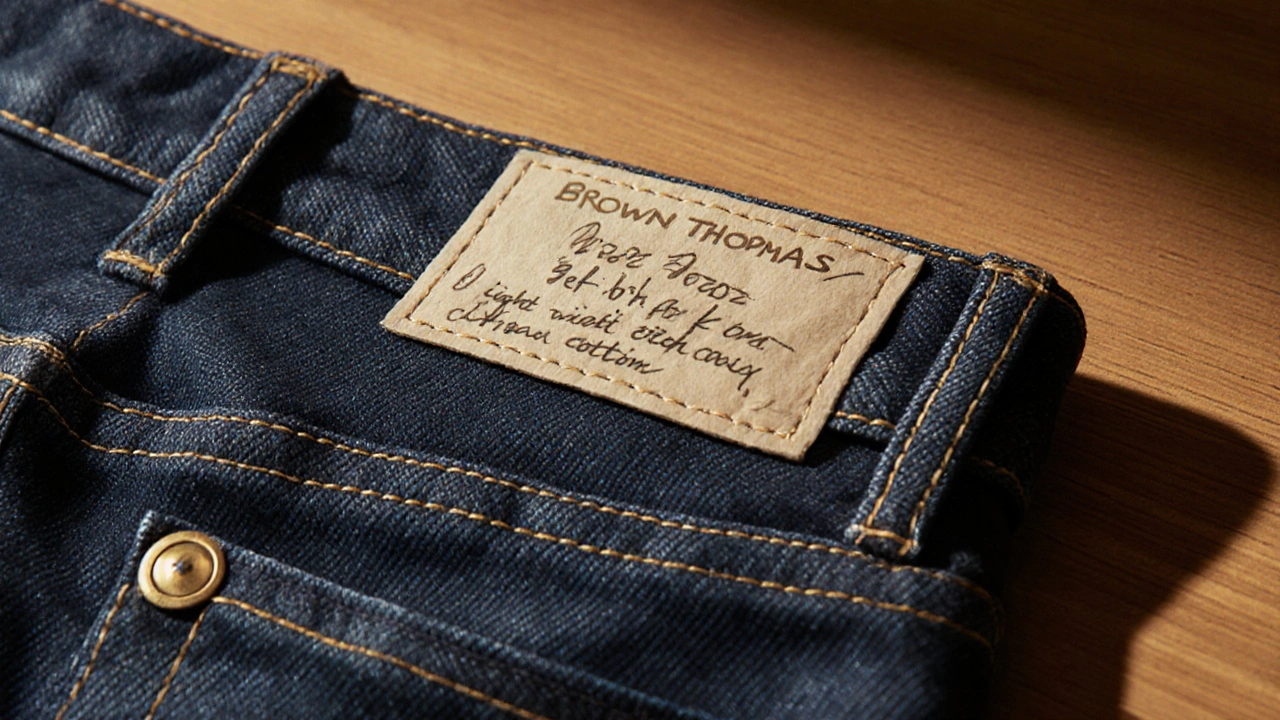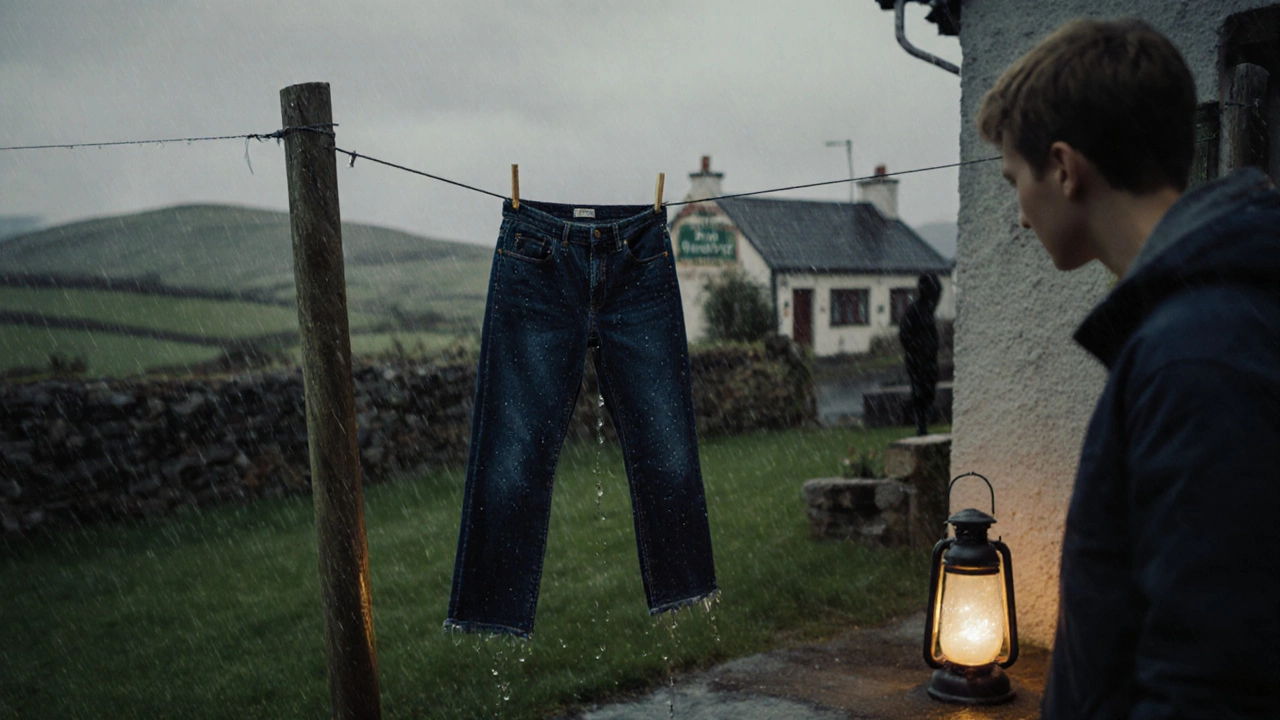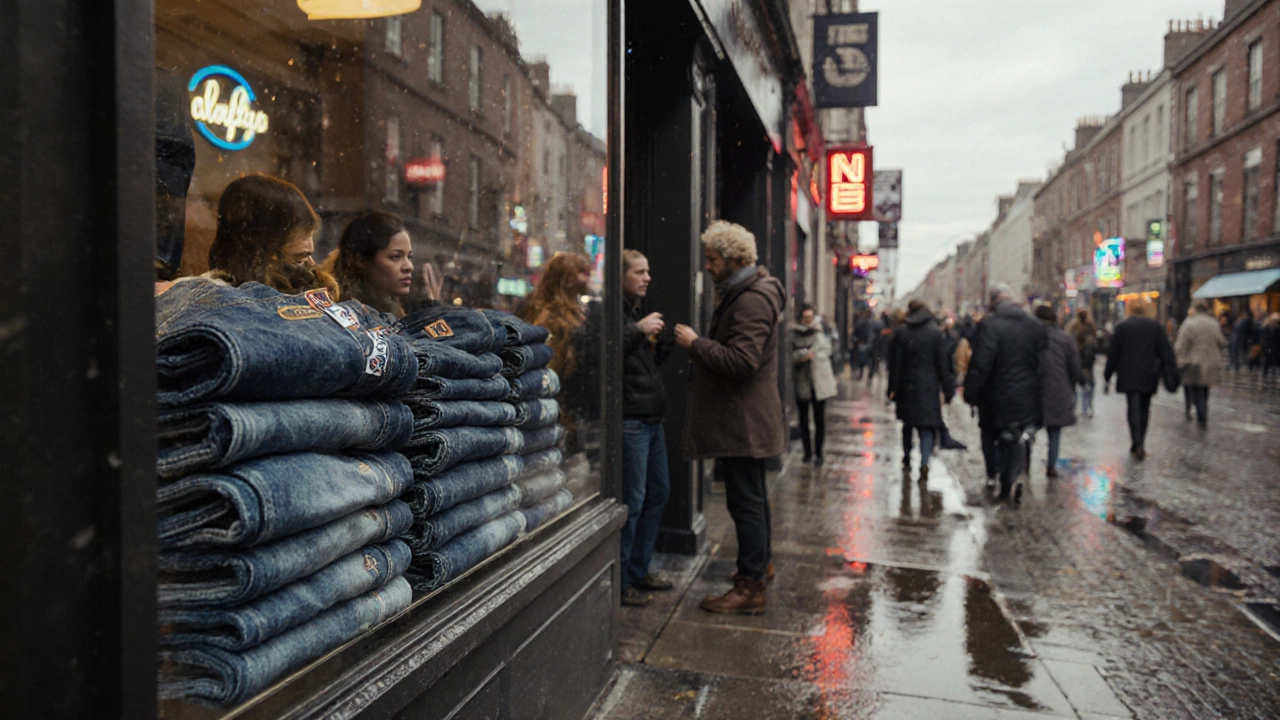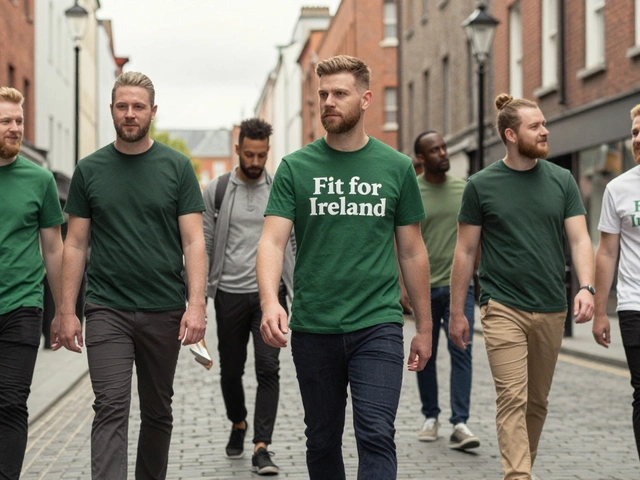Denim Cost-Benefit Calculator
Calculate how much you'll save by investing in quality denim versus fast fashion. Consider factors like cotton weight, stitch count, and Irish weather durability.
Your Current Jeans
Premium Jeans
When you stroll down Grafton Street in Dublin or shop at Penney’s in Galway, you’ll see a sea of denim. The question that pops up again and again - are more expensive jeans better quality - is especially relevant for Irish shoppers who balance price, weather durability, and style. This guide breaks down what you actually get when you spend more on a pair of jeans, how Ireland’s climate and local retailers influence the decision, and practical steps to pick the right pair without blowing your budget.
Key Takeaways
- Quality hinges on cotton weight, stitch count, and construction - not just brand name.
- Irish weather (rain and wind) accelerates wear, so durability matters more here than in drier climates.
- Local retailers like Brown Thomas and Irish denim label Dublin Denim offer premium options with transparent sourcing.
- Proper care - cold washes, line‑drying, and occasional re‑hemming - can extend a pair’s life by up to 50 %.
- Price‑to‑value analysis shows that a well‑made pair can save money over time compared with cheap, fast‑fashion alternatives.
What actually makes jeans expensive?
Jeans are a type of denim garment that combines raw cotton, specific weave patterns, and detailing such as rivets, stitching, and finishes. The price tag can rise for several reasons:
- Premium cotton: Premium denim often uses long‑staple organic cotton, which yields a smoother, stronger yarn. Brands like Nudie Jeans or Irish label Dublin Denim source their cotton from certified farms, adding to cost.
- Selvage weave: Selvage denim is woven on shuttle looms, producing a tighter edge that doesn’t fray. The slower production process can double the price of the fabric.
- Construction details: Higher stitch counts (e.g., 12‑stitch seams vs 8‑stitch) mean stronger seams. Double‑stitched rivets, reinforced crotch panels, and hand‑finished hems are labor‑intensive.
- Finishing techniques: Stone‑washing, laser‑etched distress, or enzyme treatments require extra steps. Sustainable finishing (e.g., ozone‑washed) often costs more but reduces water usage.
- Brand heritage and marketing: Brands with an iconic story - Levi’s 501, Wrangler, or locally‑grown Irish labels - charge a premium for perceived status.
How to objectively assess jean quality
Instead of guessing, use these measurable criteria, each of which can be examined in the Irish market:
- Cotton weight: Look for 12‑16 oz (340‑450 g) fabric for heavyweight, durable denim. Light‑weight 8‑10 oz denim is fine for fashion but wears faster in Ireland’s wet climate.
- Stitch count: Count the stitches per inch on the inseam. 10‑12 stitches are a sign of sturdy construction; anything below 8 may indicate cheaper production.
- Selvage edge: Turn the hem inside out - a clean, unfrayed edge signals selvage denim.
- Rivets and hardware: Brass rivets are stronger than zinc. High‑end jeans often have nickel‑plated hardware that resists corrosion from rain.
- Fit consistency: Premium brands use consistent grading tables. Try them on at Dublin’s Grafton Street stores or the Arnotts fitting rooms; the garment should feel balanced from waist to ankle.
Irish climate: why durability matters more here
Ireland’s average annual rainfall exceeds 1,200 mm, and coastal breezes bring salty air. This environment can:
- Accelerate fading - the combination of UV and moisture speeds up the wash‑out of indigo.
- Weaken seams - constant moisture can cause cheap stitching to loosen quicker.
- Cause rust on metal hardware - brass rivets hold up better against rust than zinc.
Choosing a heavier, well‑stitched pair reduces the frequency of replacement, especially for everyday wear such as a night out at a Cork pub or a weekend hike in the Connemara hills.
Where to find quality denim in Ireland
Irish shoppers have a growing set of options that blend style, ethics, and durability:
- Brown Thomas (Dublin) - Carries premium lines like Levi’s Made & Crafted, featuring selvage denim made in Japan.
- Penney’s (nationwide) - Offers an “Eco‑Denim” range sourced from organic cotton, priced mid‑range but still higher stitch count.
- Dublin Denim - An Irish label that produces its own denim in a small workshop in the Liberties, emphasizing hand‑finished hems and locally sourced wool blends for warmth.
- Arnotts (Dublin) - Stocking premium brands such as Nudie Jeans and APC, with knowledgeable staff who can explain stitch details.
- Local tailors and boutique makers - Places like *Muirtailors* in Galway offer made‑to‑measure denim, letting you pick weight, wash, and rivet style.
When you visit these stores, ask the sales associate about the “cotton weight” and “stitch count.” Most premium retailers will have a small label on the inside that lists these specs.

Price vs. value: a cost‑breakdown example
Consider two typical options available in Ireland:
| Item | Fast‑fashion (€) | Premium (€) |
|---|---|---|
| Cotton weight (oz) | 8‑10 | 13‑15 |
| Stitch count (per inch) | 6‑8 | 10‑12 |
| Selvage | No | Yes |
| Rivets | Zinc | Brass |
| Average lifespan (washes) | ~30 | ~80 |
| Estimated total cost over 3 years | ~€150 (3 replacements) | ~€180 (1‑2 replacements) |
Although the upfront cost is higher, the premium pair lasts more than twice as long, translating to a lower overall spend when you factor in replacement cycles.
Tips for choosing the right pair in the Irish market
- Feel the fabric: Ask to touch the denim. It should feel dense but not stiff. A quick pinch will reveal if the yarn is long‑staple.
- Check the seams: Look at the back pocket and inseam. Tight, even stitching is a sign of quality.
- Test the hardware: Brass rivets should feel cool and solid, not flimsy.
- Mind the wash: Dark indigo that fades gradually is preferable for Irish weather; it hides rain stains better than pre‑faded denim.
- Fit for the climate: A slightly relaxed fit leaves room for a wool sweater underneath during chilly Galway evenings.
Care routine to extend lifespan (Irish‑friendly)
Taking proper care can add years to even a mid‑range pair:
- Cold water wash (30 °C) - reduces shrinking and preserves the color.
- Turn inside out before washing - shields the outer surface from friction.
- Avoid tumble dryer - air‑dry on a line (rain‑proof line indoors if it’s a wet day).
- Freeze for odor control - place jeans in a zip‑lock bag and freeze for 24 h; this kills bacteria without a wash.
- Re‑stitch as needed - local tailors in Cork or Belfast can reinforce the crotch or replace a ripped seam for a fraction of the cost of a new pair.
Is it ever worth buying cheap jeans?
Cheap denim can make sense for short‑term needs - a one‑off festival outfit in Dublin’s Temple Bar or a travel wardrobe piece for a weekend in Belfast. However, if you’re looking for a work‑day staple, a pair that survives rain, mud, and frequent pub trips, investing in a higher‑priced pair pays off.
Final thoughts
In Ireland’s rainy, active lifestyle, quality denim isn’t just a fashion statement; it’s a practical investment. Look for weight, stitch count, selvage edges, and sturdy hardware. Shop at reputable Irish retailers or local denim makers who are transparent about their materials. And treat your jeans right - cold washes, line drying, and occasional professional repairs - to maximise the value of that €180 purchase.

Do expensive jeans really last longer?
Yes. Premium denim typically uses heavier cotton, higher stitch counts, and reinforced hardware. In the Irish climate, these factors translate to fewer holes and less fading, extending the usable life from about 30 washes to 80 + washes.
What should I look for when buying jeans in Ireland?
Check cotton weight (12‑16 oz), stitch count (10‑12 stitches per inch), selvage edges, brass rivets, and ask about sustainable finishing. Try them on in stores like Brown Thomas, Arnotts, or Dublin Denim.
Can I wash premium denim with a regular washing machine?
Yes, but use cold water (30 °C), turn the jeans inside out, and skip the dryer. Line‑dry indoors or use a clothes‑horse to avoid shrinkage and preserve the indigo.
Are there Irish brands that make high‑quality denim?
Dublin Denim and a few boutique tailors in Galway and Cork produce locally sourced, hand‑finished denim. They often combine traditional Irish wool blends for added warmth, making them ideal for the climate.
Is it worth paying extra for sustainable denim?
Sustainable denim usually means organic cotton, reduced water usage, and non‑toxic dyes. While it adds to the price, you also gain a softer feel, less environmental impact, and often better durability - a win‑win for Irish consumers.


